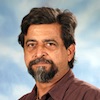
- This event has passed.
Webinar: Reframing the Climate Conversation: Telling the Story to Bring About Productive Climate Action
July 29, 2020 @ 3:00 pm - 4:30 pm EDT
Free This webinar is is brought to you by the New Jersey Higher Education Partnership for Sustainability (NJHEPS), the FrameWorks Institute and the National Network for Ocean and Climate Change Interpretation with support from the Higher Education Associations Sustainability Consortium (HEASC).
This webinar is is brought to you by the New Jersey Higher Education Partnership for Sustainability (NJHEPS), the FrameWorks Institute and the National Network for Ocean and Climate Change Interpretation with support from the Higher Education Associations Sustainability Consortium (HEASC).
It can be difficult to talk about climate change in ways that are productive, informative, and engaging — but the scale of the challenge in front of us requires that we find a way to do this. Fortunately, it doesn’t have to be a guessing game. Jessica Moyer, from the FrameWorks Institute, will share the research process her organization undertook to identify the most common reasons that conversations about climate change go wrong, as well as to design, develop, and test communications strategies that foster a ‘common good’ mindset and prompt solutions thinking. Emily Moberg, Executive Chair of the National Network for Ocean and Climate Change Interpretation, will share how these powerful communications techniques can be used to talk about climate change—the causes and the solutions.
You’ll leave this presentation with a deeper knowledge about how the American public thinks about climate change and how your communications influence thinking as well as with concrete tools to facilitate productive conversations about the climate.
For members: watch on demand For members: archived webinars on demand Upcoming webinars
Presenters
|
Jessica Moyer, Principal Strategist, FrameWorks Institute Jessica Moyer is a sociologist and geographer by training, and a Principal Strategist at the FrameWorks Institute where she helps advocates working across a range of progressive social issues engage the public in more productive conversations—ones that build public understanding and drive positive change. Prior to joining FrameWorks, Jessica served in various roles at social and environmental organizations, including the Washington Conservation Corps, Washington State Department of Fish and Wildlife, Stillwater Sciences Inc., and the Center for Marine Resource Studies in the Turks and Caicos Islands. She has held research and teaching positions at universities in the United States and the United Kingdom. |
|
|
Emily Moberg, Executive Chair, National Network for Ocean and Climate Change Interpretation Emily Moberg is the Executive Chair for the National Network for Ocean and Climate Change Interpretation and has worked with the organization since 2013 in roles ranging from curricular design to leading the network’s Science Fellows. A scientist herself, she conducted her doctoral research in the MIT-Woods Hole Oceanographic Institution joint program and has conducted research at Yale and Rutgers on the impacts of climate change on fisheries. Emily believes that empowering scientists and science educators how to communicate about climate change is a critical component of climate action. |
|
 |
Moderator: Ashwani Vasishth, Associate Professor of Sustainability and Director, Center for Sustainability at Ramapo College of New Jersey Ashwani Vasishth is Associate Professor in Sustainability, Convener of the undergraduate Sustainability Program (BA), and Director of the Center for Sustainability at Ramapo College of New Jersey. He is President of the New Jersey Higher Education Partnership for Sustainability (NJHEPS). He directs as well the AASHE Center for Sustainability Across the Curriculum at RCNJ. He is part of the Environmental Studies Major, and is a faculty member in both the South India and Peru Study Abroad Convening Groups. His pedagogy is focused on Education for Sustainability from within a transdisciplinary framework, and within the context of a globalizing International Development paradigm. He has research interests in an ecosystem approach, urban ecology, systems thinking and mental models. He received his PhD from the University of Southern California, Los Angeles, in Environmental Planning, and his Master’s Degree from MIT, Cambridge, in International Development. He has an undergraduate degree in Architecture from India, with a focus on vernacular shelter systems. |